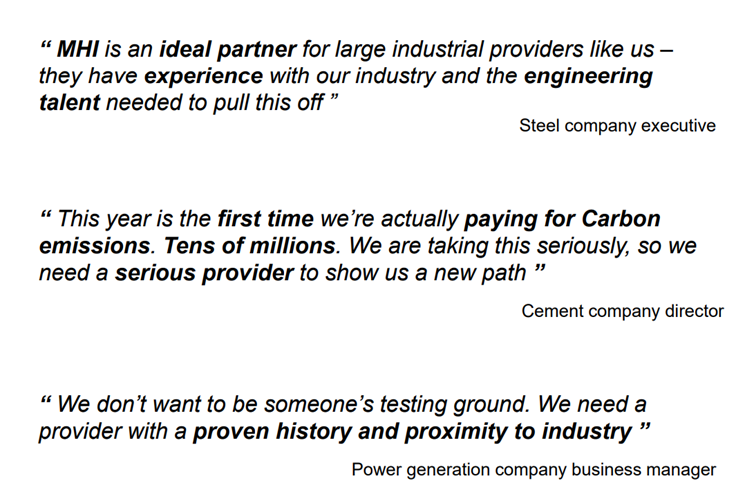Global Trends
The world is moving towards a decarbonized society. At present, many countries and companies are pushing to reduce CO2 emissions and achieve Carbon Neutrality by 2050.
It is necessary to reduce CO2 emissions by promoting both CO2 reduction and CO2 recovery in order to achieve net zero greenhouse gas emissions (net zero carbon) and realize a global Carbon Neutral society.
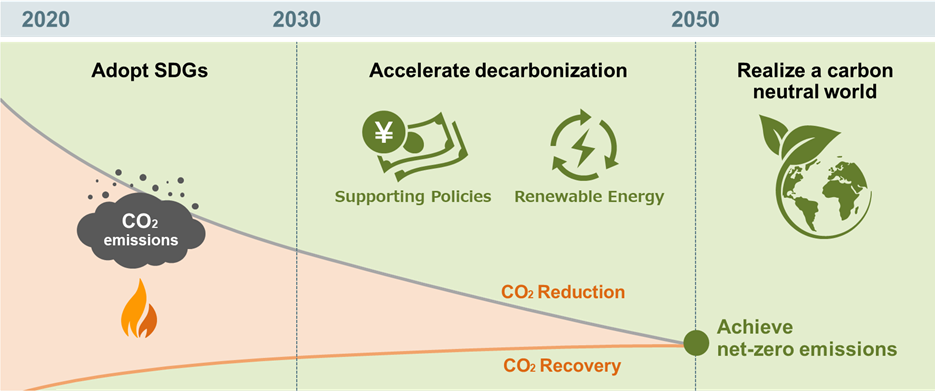
Annual CO2 Capture Required to Achieve Carbon Neutrality by 2050
A variety of methods to reduce CO2 emissions are needed to achieve Carbon Neutrality by 2050. However, even after these reduction efforts, around 4.3-13 Gtons/year of CO2 emissions are expected to remain.
To capture this remaining CO2, 100 to 300 times the current global CO2 capture capacity will be needed. By 2050, CO2 capture will operate in a wide range of industries, including manufacturing, fuel production (including blue fuels), power generation, aviation, and transportation, which means CCUS will be essential in a wide range of industries in the future.
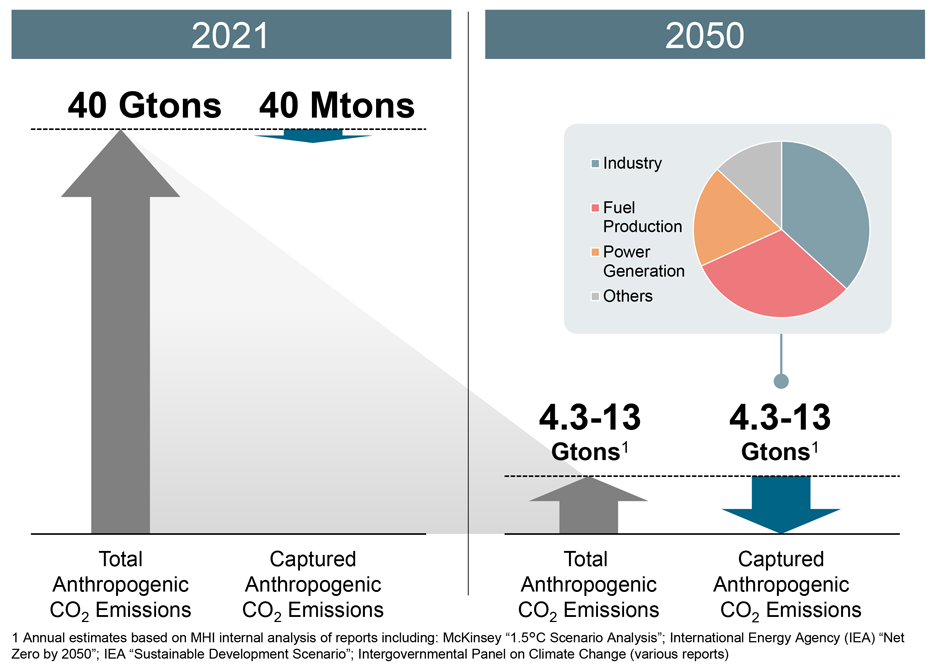
- Anthropogenic CO2 Emissions: CO2 emitted by human activities, including industrial factories
What's CCUS
CCUS is an abbreviation of Carbon dioxide (CO2) Capture, Utilization, and Storage.
(Transportation is also required, though it is not included in the acronym.)
Promoting CCUS is vital to realize a global Carbon Neutral society.
CO2 storage (CCS) development plans underway mainly in the Americas and Europe, and hundreds of storage sites need to be developed around the world to store the projected 4.3 to 13 Gtons/year of emissions.
According to the International Energy Agency, worldwide storage potential is estimated to be more than 8 trillion tons (equivalent to more than 600 years of emissions at projected 2050 levels).
Vast acceleration of CCS with significant increase in number of storage sites and construction of a CO2 network including transportation is needed. At the same time, CCUS faces institutional, scaling, and technical challenges – all of which require innovative solutions to overcome.
Mitsubishi Heavy Industries (MHI) Group CCUS Solutions
MHI Group hereby make the declaration of achieving Carbon Neutrality by 2040.
Realizing a Carbon Neutral society is a global issue, we believe that as a technology leader, with a proven track record in the field of decarbonization, it is MHI Group's responsibility to help lead the fight against climate change.
The declaration sets a target to reduce CO2 emissions across MHI Group's value chain to net zero by 2040, and CCUS's contribution is an important factor in achieving this target.
MHI Group aim to contribute to effective solutions, to maximize cost effectiveness, and significantly reduce CO2 emissions by optimizing the entire CCUS value chain, including CO2 capture, transportation, utilization, and storage.
To establish stable CCUS value chain, we are expanding our lineup of CCUS-related products, including state-of-the-art CO2 capture technology, compact CO2 capture system, LCO2 vessels, compressors, and CO2NNEX™ which is a digital platform enable visualization of CCUS value chain.
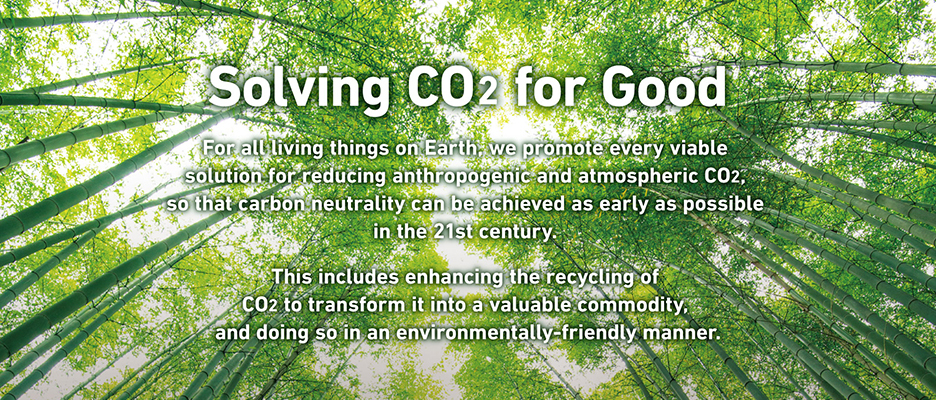
Technologies and product lineups
MHI Group has essential technologies and products related CCUS such as CO2 capture, transportation, and compression etc.. We also have been accelerating further development and expanding use of the technologies according to the market growth. In addition, MHI Group is also working to improve its CCUS business portfolio as a whole by studying the utilization of CO2 in various fields.
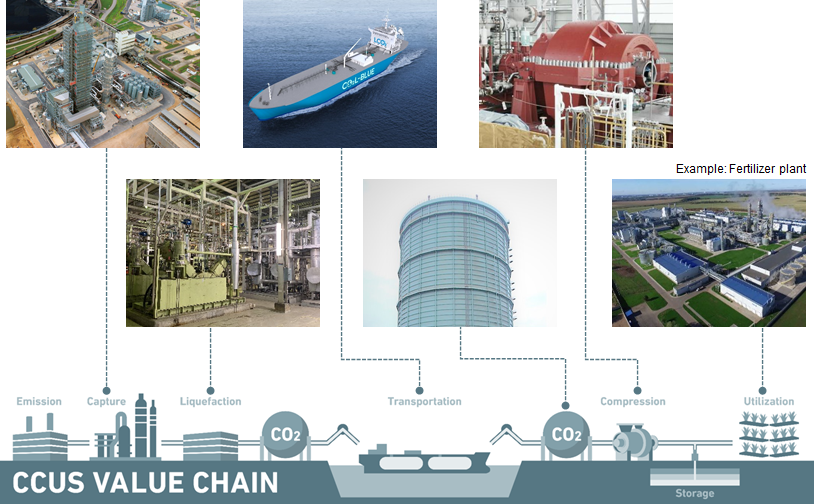
GX Solutions own proprietary CO2 capture technology and has a track record of commercial CO2 capture plants all over the world. Furthermore, We are commercializing compact CO2 capture systems and it coordinates various technical support for CO2 capture related business within MHI Group.
In order to accelerate decarbonization, CO2 capture technologies from a variety of emissions sources are required. To meet these needs, we have been developing new proprietary technologies such as dry type and DAC (Direct Air Capture) systems etc.. As a provider of CO2 capture technology, we also aim to support customers by remote monitoring and CaaS (CO2 capture as a Service) and after-service and O&M (Operation and Maintenance).
Column 1: CO2NNEX™
Mitsubishi Heavy Industries and IBM Japan are developing "CO2NNEX™" Digital Platform for Visualization of the CCUS value chain. Specifically, the companies are working to preserve a clean global environment in the coming new era through visualization and strengthening of the CO2 supply chain, for which limited options for storage or conversion are currently available in order to expand the range of application alternatives and foster a worldview in which all stakeholders are able to work together to protect the global environment.
- MHI and IBM Japan to Develop the "CO2NNEX™" Digital Platform for Visualization of the CCUS value chain
- Voices of our Partners: Mr. Akio Yamaguchi, General Manager and President, IBM
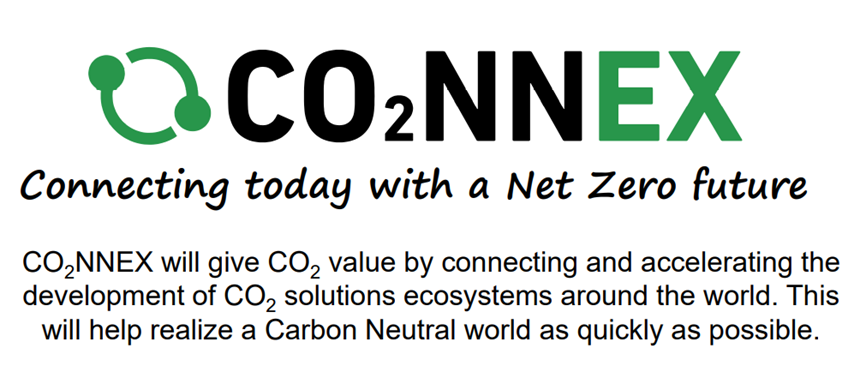
Column 2: Voice of the Customer
Customer feedback indicates that MHI Group's proven track record, superior engineering capability, and wide breadth of experience are our strengths.
Quote form CCUS Briefing held in October 2021.
